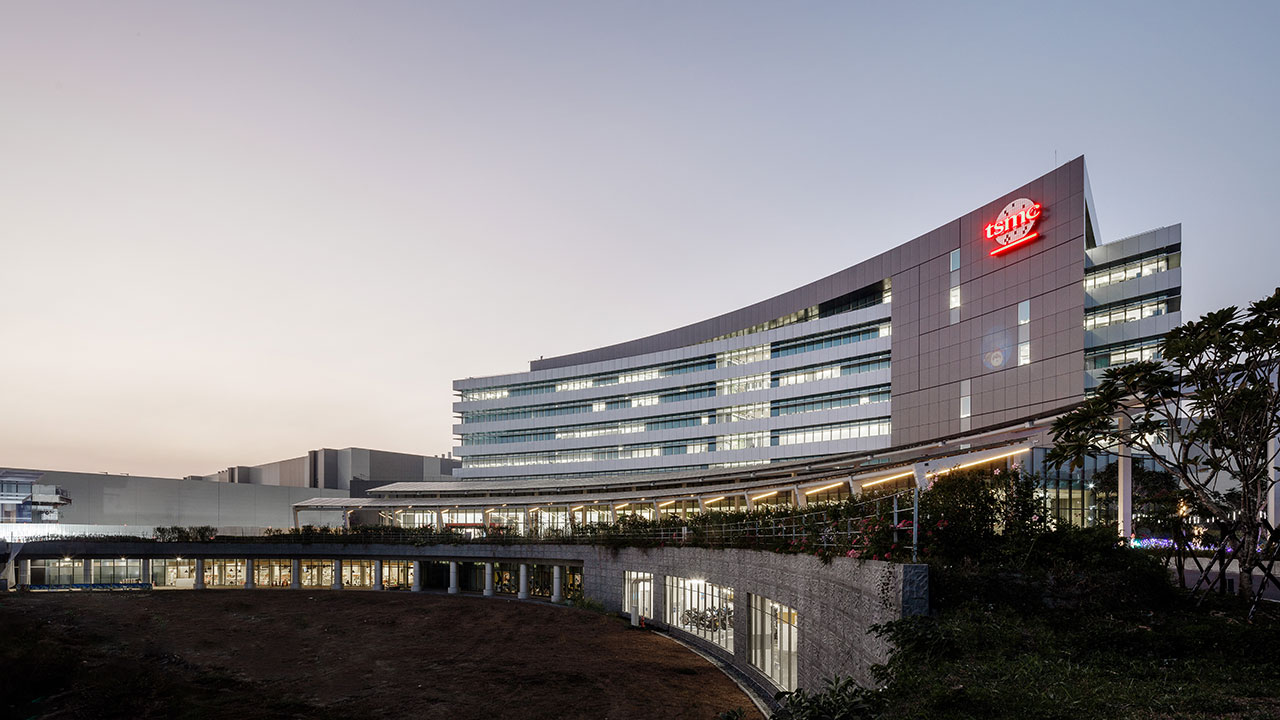TSMC Teams Up with Bosch, Infineon, NXP for European Fab
TSMC establishes ESMC joint venture Bosch, Infineon, and NXP.

TSMC in collaboration with partners Bosch, Infineon, and NXP, on Tuesday unveiled plans to form a joint venture and construct a chip fabrication facility near Dresden, Germany. The joint venture named European Semiconductor Manufacturing Company (ESMC) will own a fab that will produce chips for automotive, industrial, and IoT applications using TSMC's 12nm, 16nm, 22nm, and 28nm-class process technologies starting from late 2027.
The planned ESMC fab is expected to have a production capacity of around 40,000 300-mm wafer starts per month, though TSMC does not disclose whether by a wafer it means a wafer processed on a 28nm node, or a 12nm process technology. By modern standards, a fab with a 40,000 WSPM is not exactly a large production facility (GlobalFoundries' Fab 1 in Dresden has capacity of well over 100,000 WSPM), but since this particular fab will be used almost exclusively for German and Austrian automakers, industrial equipment producers, and IoT companies, it should be just enough to meet their demands in the latter half of the decade.
"This investment in Dresden demonstrates TSMC’s commitment to serving our customers’ strategic capacity and technology needs, and we are excited at this opportunity to deepen our long-standing partnership with Bosch, Infineon, and NXP," said Dr. CC Wei, CEO of TSMC. "Europe is a highly promising place for semiconductor innovation, particularly in the automotive and industrial fields, and we look forward to bringing those innovations to life on our advanced silicon technology with the talent in Europe."
Meanwhile, the fab will use TSMC's mature technologies, such as 28nm and its various specialized derivatives, including 22nm low power fabrication process. TSMC has been trying to urge automakers and other customers to transit their long-living designs to its 28nm-class nodes for a couple of years now and cease using legacy 45nm, 65nm, 90nm, and older nodes. Now that there is a 28nm-capable fab in Europe, they will certainly be more inclined to do so. In addition, the fab will be capable of processing wafers on TSMC's FinFET-based 16nm and 12nm production nodes that are gaining popularity among automakers today.
The new fab is meant to ensure a consistent chip supply for German and Austrian automotive giants in the second half of the decade. There is a catch though. Complex system-in-packages for self-driving and infotainment will define value of autos in the coming years. And yet, automakers like BMW, Mercedes, Stellantis, and VAG — which are investing heavily in proprietary silicon for their autos due in the coming years — will have to produce their SoCs and SiPs either in Taiwan or the U.S. if they go with TSMC. Alternatively, they will have to use Intel's fab near Magdeburg, Germany, to make their leading-edge processors.
"Infineon will use the new capacity to serve the growing demand particularly of its European customers, especially in automotive and IoT," said Jochen Hanebeck, CEO of Infineon Technologies. "The advanced capabilities will provide a basis for developing innovative technologies, products and solutions to address the global challenges of decarbonization and digitalisation."
The ESCM fab is slated to start constriction in the second half of 2024 and begin production in late 2027. TSMC will operate the fab.
Get Tom's Hardware's best news and in-depth reviews, straight to your inbox.
As far as ownership is concerned, TSMC is poised to command a majority 70% stake in the venture, whereas the remaining partners —Bosch, Infineon, and NXP— will equally share the remaining equity, each securing a 10% stake. Investments in the fab are expected to be around €10 billion with €5 billion rumored to come in subsidies from from the German government and under European Chips Act.

Anton Shilov is a contributing writer at Tom’s Hardware. Over the past couple of decades, he has covered everything from CPUs and GPUs to supercomputers and from modern process technologies and latest fab tools to high-tech industry trends.
-
PlaneInTheSky ReplyInvestments in the fab are expected to be around €10 billion with €5 billion rumored to come in subsidies from from the German government and under European Chips Act.
As far as ownership is concerned, TSMC is poised to command a majority 70% stake in the venture, whereas the remaining partners —Bosch, Infineon, and NXP— will equally share the remaining equity, each securing a 10% stake.
So the European tapayer funds this fab with taxpayer money, and Taiwan then owns it. Way to screw over European taxpayers.